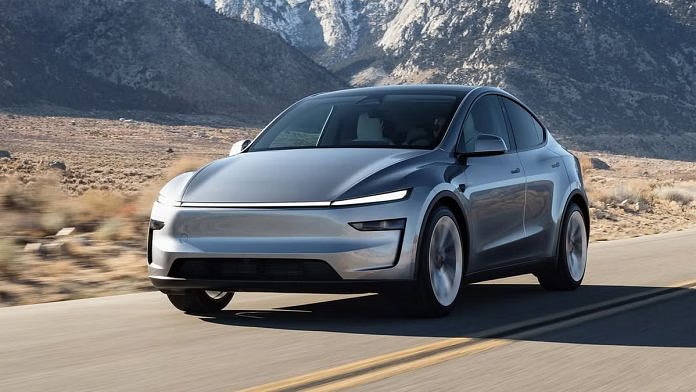In 2023, a surprising statistic caught the attention of global energy analysts: electric vehicle (EV) sales in Brazil have surged by 80% compared to the previous year. This rise in EV adoption in Brazil, an emerging market, is driving significant shifts in the automotive landscape. As countries worldwide strive to meet climate goals, Brazil is emerging as a pivotal player in the sustainable mobility revolution. This article explores how Brazil and other emerging markets are accelerating EV adoption, what factors are driving this change, and what it means for the future of transportation.
The Brazilian EV Boom: A Market in Transformation
Government Policies and Incentives
One of the primary drivers of EV adoption in Brazil is the government’s proactive policies and incentives. The Brazilian government has introduced a range of measures to promote EV usage, including:
- Tax Incentives: Reduction in import taxes for electric vehicles and subsidies for local manufacturers.
- Infrastructure Development: Investment in charging infrastructure, with plans to install over 20,000 charging stations nationwide by 2025.
- Regulatory Support: Legislation mandating a certain percentage of new vehicles sold to be electric by 2030.
These policies have created a conducive environment for both manufacturers and consumers, making EVs more accessible and affordable.
Technological Advancements and Local Manufacturing
Brazil is not just importing EV technology but also nurturing local manufacturing capabilities. Companies like Volkswagen and BYD are investing heavily in Brazilian production facilities. Volkswagen, for instance, has pledged to launch 10 new electric models in Brazil by 2025, aiming to cater to the growing demand for sustainable transport options.
Local manufacturing not only reduces costs but also stimulates job creation and technological innovation within the country. The focus on developing battery technology, including emerging solid-state batteries, is also pivotal in overcoming charging and range limitations.
Challenges and Opportunities in Emerging Markets
Infrastructure and Charging Challenges
Despite the positive outlook, challenges remain. The development of a robust charging infrastructure is crucial for widespread EV adoption. Emerging markets often face:
- Limited Charging Stations: While urban areas are seeing rapid growth, rural areas remain underserved.
- Energy Grid Constraints: Ensuring the energy grid can support increased demand from EV charging is essential.
To address these issues, collaboration between the government, private sector, and international partners is necessary. Investments in renewable energy sources, like solar and wind power, can help bolster the grid’s capacity while maintaining sustainability.
Consumer Perception and Education
Another significant hurdle is consumer perception. Many potential buyers are still wary of EVs due to misconceptions about range anxiety and battery longevity. Education and awareness campaigns are vital:
- Public Demonstrations: Hosting test-drive events and showcasing EV capabilities.
- Educational Programs: Partnerships with schools and universities to incorporate sustainable transportation modules.
Practical Tips for Prospective EV Buyers in Brazil
How to Buy an Electric Vehicle
For those considering purchasing an EV in Brazil, here are some practical tips:
- Research Models: Compare different brands like Tesla, Nissan, and Hyundai, focusing on range, features, and after-sales services.
- Cost Analysis: Calculate total ownership costs, including potential tax incentives and savings on fuel.
- Test Drive: Schedule test drives to experience the vehicle’s performance and comfort firsthand.
Charging Your EV
Charging infrastructure varies across regions, but here are some general guidelines:
- Home Charging: Consider installing a Level 2 charger at home for convenience.
- Public Charging Stations: Utilize apps to locate nearby charging stations and plan longer trips accordingly.
- Renewable Options: Explore solar panel installations to charge your EV sustainably.
Looking Ahead: The Future of EVs in Brazil and Beyond
In conclusion, the rise of electric vehicles in emerging markets like Brazil is a testament to the global shift towards sustainable transportation. The combination of government incentives, technological advancements, and changing consumer attitudes is propelling this transformation. As more countries follow suit, the landscape of global mobility is set to evolve dramatically.
For readers considering an EV purchase, now is an opportune time to explore your options. With advancements in battery technology and expanding infrastructure, the barriers to EV adoption are diminishing. Are you ready to be part of the electric vehicle revolution?
As we look to the future, the ongoing collaboration between governments, manufacturers, and consumers will be crucial in driving sustainable mobility forward. Countries like Brazil are not just participants in this revolution—they’re leaders setting the pace for a greener, more sustainable future.
By understanding the dynamics at play in Brazil and other emerging markets, we gain insights into how the global EV market might evolve. With continued innovation and investment, the dream of an all-electric future is becoming an increasingly attainable reality.

